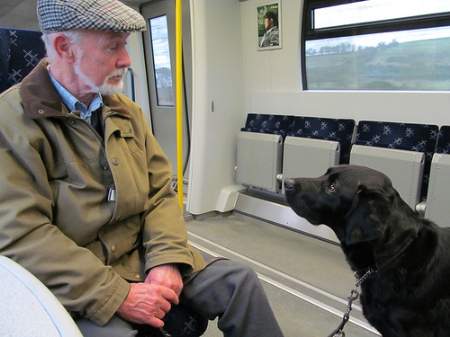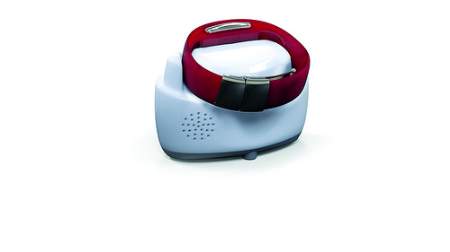The first images have been released of five new technologies and services that will help to revolutionise the lives of people with dementia.
The systems were developed as part of a partnership between the Design Council and the Department of Health which challenged industry to collaborate with design specialists to come up with novel new ideas to help dementia and Alzheimer’s sufferers maintain their independence for longer.
The ground-breaking innovations are:
- Grouple , an online network that helps families plan and share care
- Trading Times , a website to help carers find flexible employment
- Dementia Dog , a new approach that trains specially-selected assistance dogs to help and protect the wellbeing of people with dementia
- buddiband , a discrete wristband which uses cutting-edge technology to keep carers informed of the welfare of the wearer and to respond if necessary
- The Ode scent clock , which uses aromatherapy to help increase the appetite of dementia sufferers, improving nutrition and increasing weight
The prototype designs were unveiled at an exhibition and will now be tested further and receive support to take them to market.
Care Services Minister, Paul Burstow, said: “Fear of dementia can leave people feeling powerless and trapped, leaving them isolated and unsupported. That is why we have worked with the Design Council to drive innovation in dementia care. The five winning ideas have the potential to make a big difference for people with dementia and their families.

Trained Dementia Dogs will help sufferers to maintain their independence, dignity, companionship and overall quality of life
And he has announced a second partnership with the Alzheimer’s Society that will challenge cities, towns and villages across England to become more engaged with the dementia revolution.
He said: "Working with businesses, councils, the local NHS and community groups, our immediate goal is a network of 20 dementia-friendly cities, towns and villages who will lead the way."

Using 3D accelerometers and RFID, BuddiBand provides user identification, personal monitoring and an emergency alert
David Kester, chief executive of the Design Council, added: “A consequence of an ageing population is a threefold increase in dementia over the past 20 years. That means there are many millions of people who need new products and services designed to meet their changing needs. This project demonstrates that if you put the people who are living with dementia, including carers, at the centre of the design process, you end up with rapid and inspiring innovation. It’s just what we need right now – both for our local communities and for UK enterprise.”
